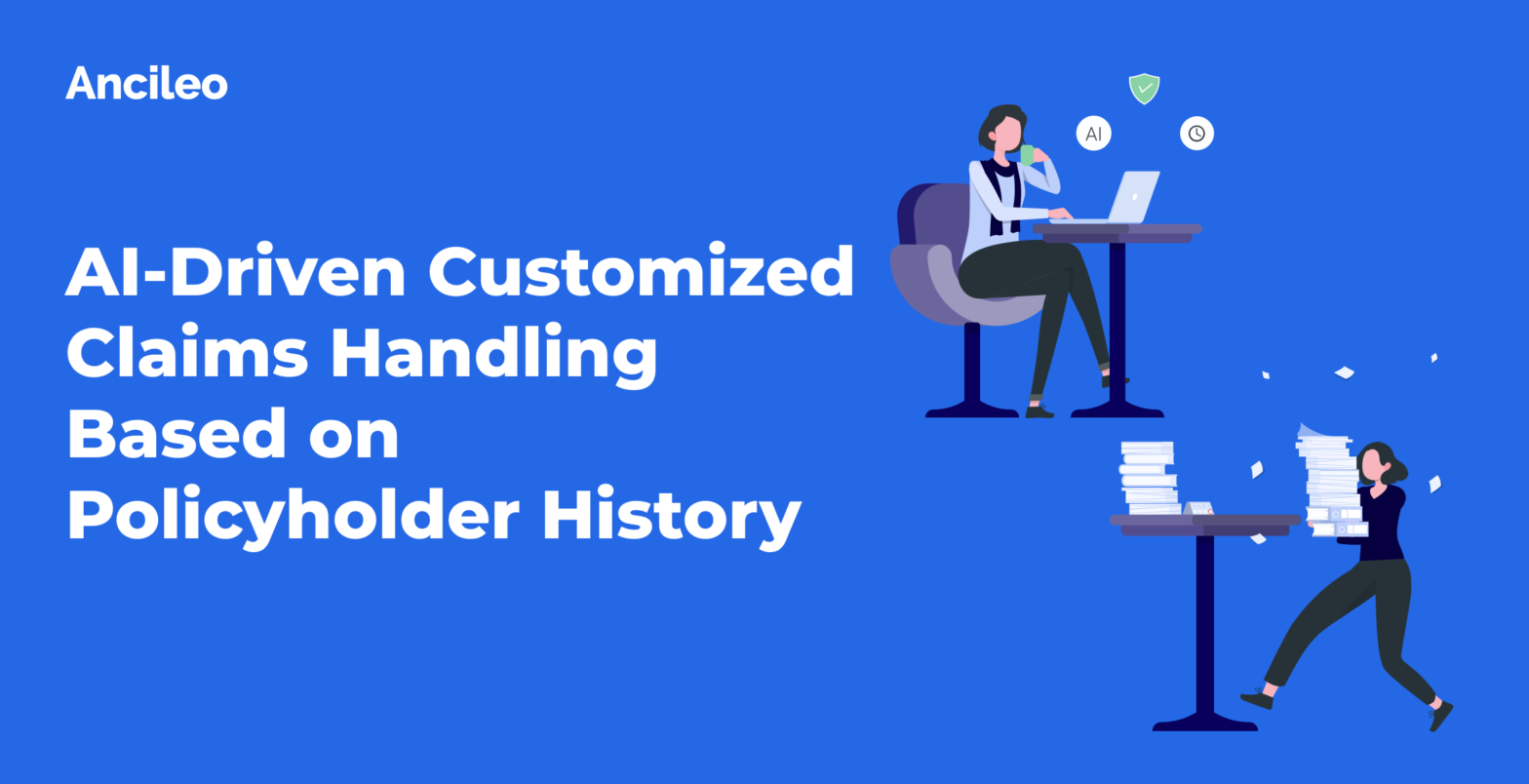
Artificial Intelligence (AI) has transformed the insurance industry by offering advanced data analytics and automation capabilities. This technology has significantly impacted claims handling by insurance companies, resulting in more personalized and efficient processes. AI enables customized claims handling by leveraging data to understand individual policyholder needs and preferences, ultimately improving the overall customer experience.
This article explores how AI can elevate claims handling in the insurance sector by tailoring it to each policyholder’s unique history and preferences. We’ll also delve into the advantages of employing AI in claims processing for insurers and policyholders. Additionally, we highlight AI’s potential for improved efficiency, accuracy, and customer satisfaction.
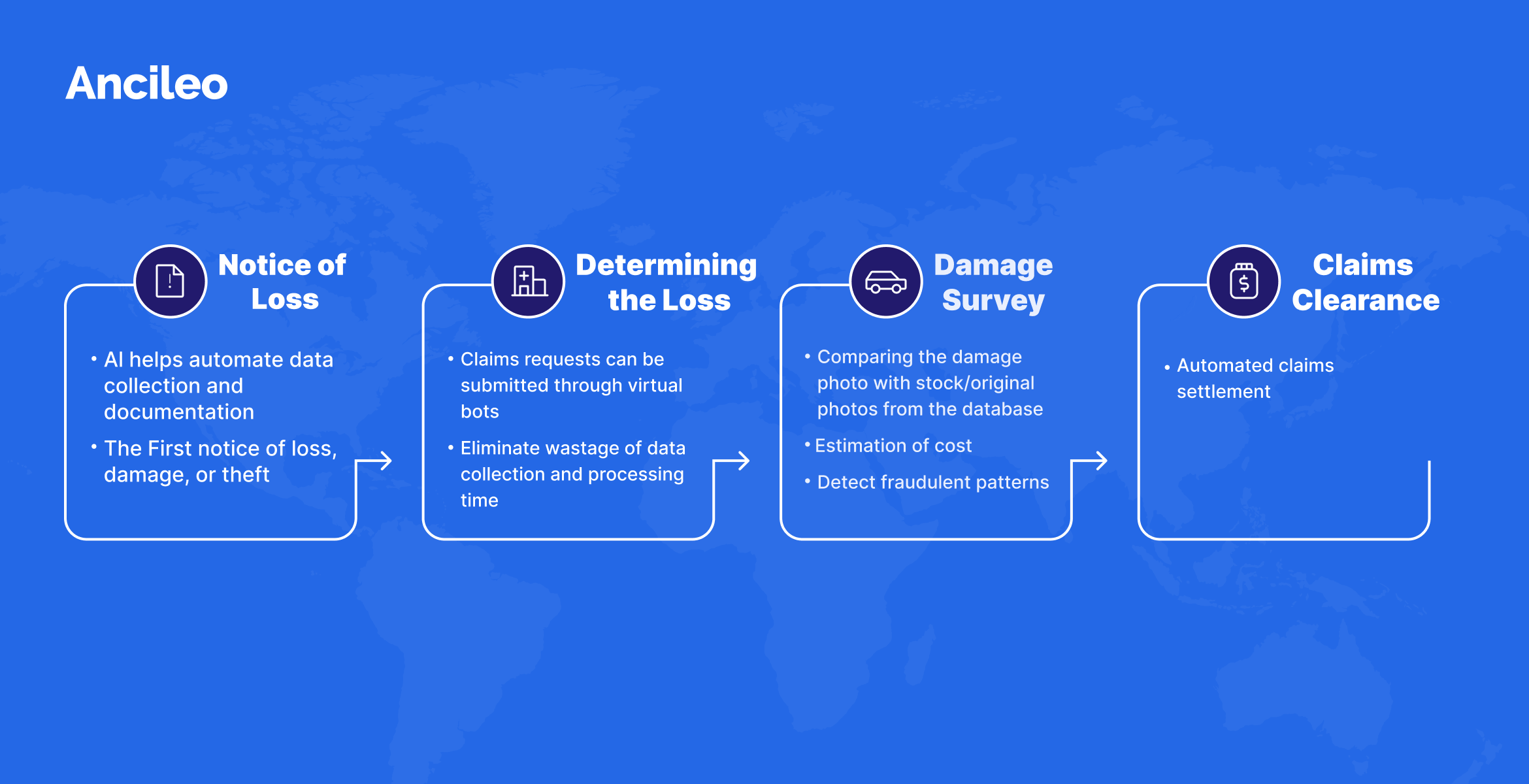
Source: How AI is Making Insurance Claim Processing Simple & Reliable | Shaip
The current state of claims handling is far better and more streamlined than the traditional claims handling process. Let’s take a look at the details of the traditional and current state of claims handling:
In the traditional claims handling processes, insurance companies typically follow steps to process and settle claims. These processes are often time-consuming and can lead to inefficiencies and customer dissatisfaction. It typically consists of a series of steps which are detailed below:
In today’s dynamic business environment, there is a growing need for innovation, particularly in customer experience. Customers now expect highly personalized services tailored to their specific needs and preferences. This shift in expectations demands innovative approaches to product development, service delivery, and customer engagement.
Customer experience has become paramount in policyholder retention in insurance-related industries. Insurers recognize that a seamless, personalized customer experience is crucial for retaining policyholders and differentiating themselves in a competitive market. Therefore, innovation in customer experience is not just a desire but a necessity for businesses looking to thrive in the modern marketplace.
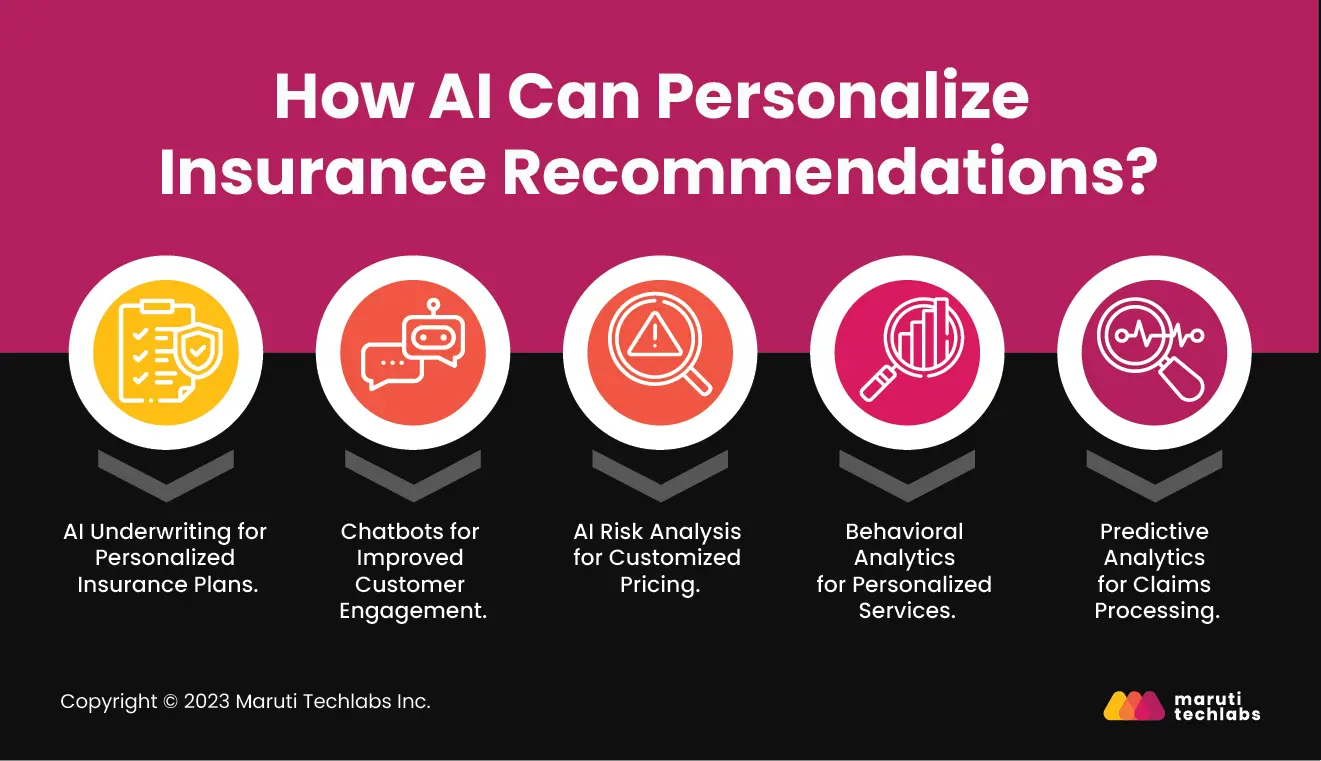
Source: The Impact of AI on Insurance: 18 Top Use Cases You Must Know (marutitech.com)
In insurance, AI is pivotal in revolutionizing the claims-handling process and offers personalized and efficient services to policyholders.
AI leverages policyholder data to tailor claims handling by implementing advanced analytics and machine learning algorithms. By analyzing historical data, AI can accurately predict claim outcomes, expedite the claims process, and provide personalized recommendations. For instance, AI can use historical data to anticipate potential issues or fraudulent claims, leading to more efficient and accurate claims processing. This automation reduces manual tasks, significantly cutting down processing times and operational costs. It also enhances accuracy by minimizing human errors and improving fraud detection capabilities. These advancements result in quicker resolutions and higher customer satisfaction, with policyholders receiving timely and personalized services, thus building greater trust between insurers and their clients.
AI-driven chatbots and virtual assistants are transforming the customer experience by offering immediate and personalized support to policyholders. These AI-powered interfaces can handle real-time customer inquiries, providing round-the-clock assistance. Additionally, AI enables customized communication based on individual customer preferences, ensuring a seamless and tailored experience throughout the claims-handling process. This personalized approach not only enhances customer satisfaction but also fosters trust in the insurance provider’s services. By leveraging AI, insurance companies can improve efficiency, reduce response times, and maintain a high level of customer engagement, ultimately leading to a more positive and trusting relationship with their clients.
In recent years, insurance companies have increasingly turned to artificial intelligence (AI) to streamline and personalize their claims-handling processes. AI technologies have enabled insurers to improve customer satisfaction and reduce claim resolution times through customized and efficient approaches. This case study explores real-world examples of insurers leveraging AI for tailored claims handling and statistical improvements in customer satisfaction and claim resolution times.
Lemonade, a digital insurer, utilizes AI-powered chatbots to handle claims efficiently. These chatbots, powered by AI algorithms, can process claims in seconds, providing customers with rapid and personalized assistance.
Allstate, a leading insurance provider, implemented AI to analyze claim data and develop customized customer solutions. Utilizing AI algorithms, Allstate has offered personalized recommendations and streamlined the claims process to improve the customer experience.
Insurers incorporating AI technologies in claims handling have substantially reduced claim resolution times. Reports indicate that AI-driven claims processing has led to a 50% decrease in average claim resolution durations, resulting in quicker and more efficient settlements for policyholders.
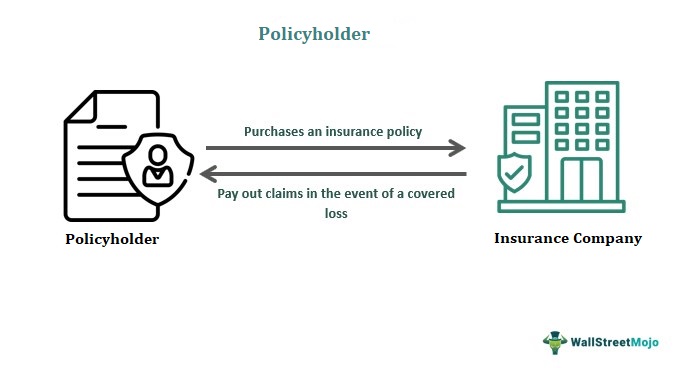
Source: Policyholder – Meaning, Explained, Surplus, Examples, Vs Insured (wallstreetmojo.com)
AI’s power in claims handling is hidden in its ability to leverage a wealth of policyholder data. This data encompasses various categories:
In the insurance industry, leveraging policyholder history involves collecting various types of data. This comprehensive dataset provides valuable insights into policyholder behavior, preferences, and risk profiles. By using big data analytics, insurers can identify patterns and preferences within this data, enabling them to tailor their services more effectively to meet the specific needs of policyholders.
Transactional: Information on policy purchases, premium payments, and claims history, offering insights into policyholder behavior and risk profiles.
By harnessing the power of big data analytics, insurers can uncover valuable insights from the collected data, such as identifying trends in policyholder behavior, understanding their preferences, and predicting future needs and behaviors.
Predictive analytics is pivotal in enhancing claims handling processes within the insurance industry. Insurers utilize predictive models to forecast claims frequency and severity, enabling them to manage and deal with potential risks proactively. This proactive approach offers several benefits, including improved operational efficiency, fraud detection, and customer experiences.
By analyzing historical data and employing advanced predictive modeling techniques, insurers can accurately forecast the frequency and severity of future claims. This enables them to allocate resources more effectively and anticipate potential challenges in claims handling.
Proactive claims management allows insurers to identify and address emerging trends and risks early, improving operational efficiency and cost savings. Additionally, it enhances fraud detection capabilities and empowers insurers to deliver timely and personalized support to policyholders, ultimately improving overall customer satisfaction.
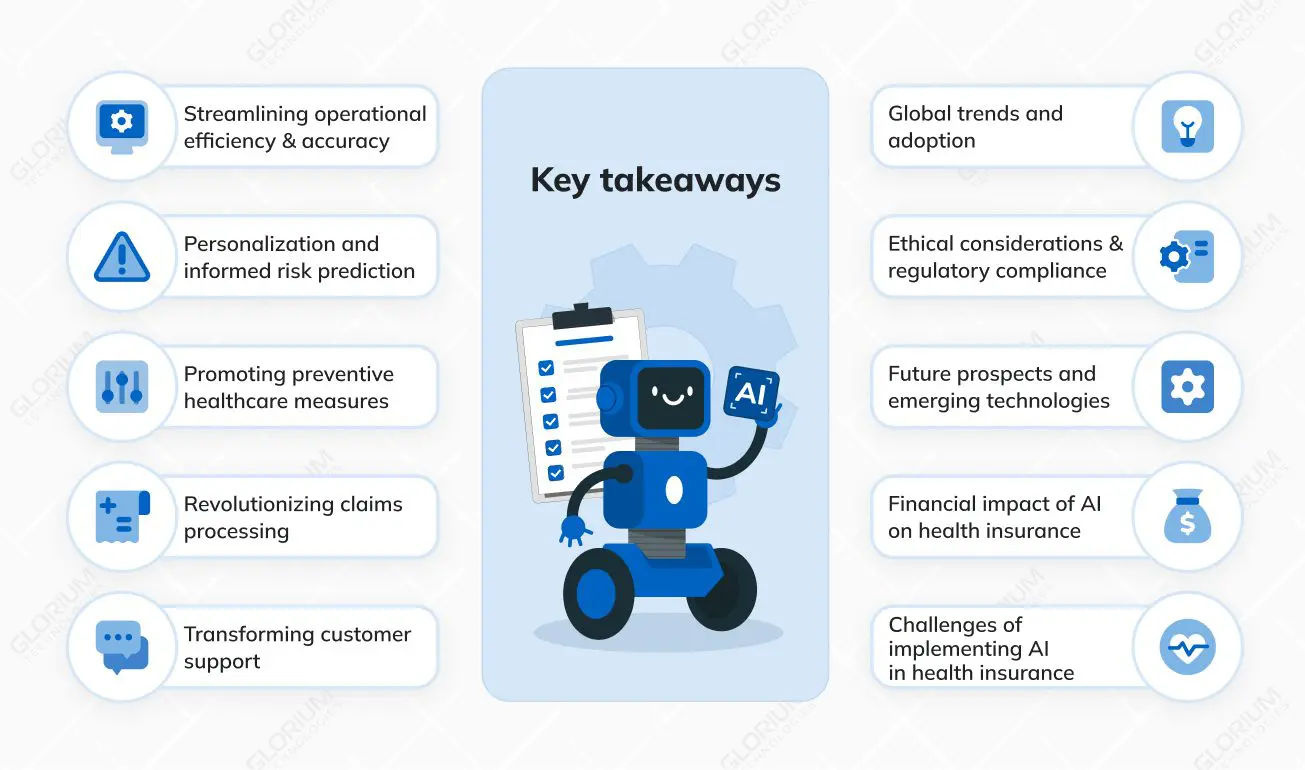
Source: The Power of Artificial Intelligence in Health Insurance – Glorium Technologies
In today’s customer-centric insurance industry, integrating policyholder preferences is crucial for enhancing customer satisfaction and retention. The understanding of policyholder preferences allows for a truly customer-centric approach.
Insurance companies should allow policyholders to choose their preferred communication channels, such as email, SMS, or app notifications. This ensures that updates and essential information are delivered through the most convenient channels for the policyholders.
Insurers should understand that policyholders have varying communication preferences. Some may prefer regular updates, while others prefer to receive communications only for critical matters. Customizing these aspects can significantly improve the overall communication experience for policyholders.
Now, no longer a one-size-fits-all approach, AI can offer a variety of settlement options. Insurance companies should offer numerous options, such as direct deposit or check. Providing flexibility in settlement options allows policyholders to choose the method that best suits their preferences and immediate financial needs.
Insurers should recognize that policyholders have unique circumstances and preferences. This could involve accommodating specific timeframes, providing additional support for complex claims, or offering personalized guidance through the settlement process, ultimately enhancing the overall customer experience.
By integrating policyholder preferences through customized communication channels and flexible settlement options, insurance companies can demonstrate their commitment to prioritizing the needs and preferences of their policyholders, leading to improved customer satisfaction and loyalty.
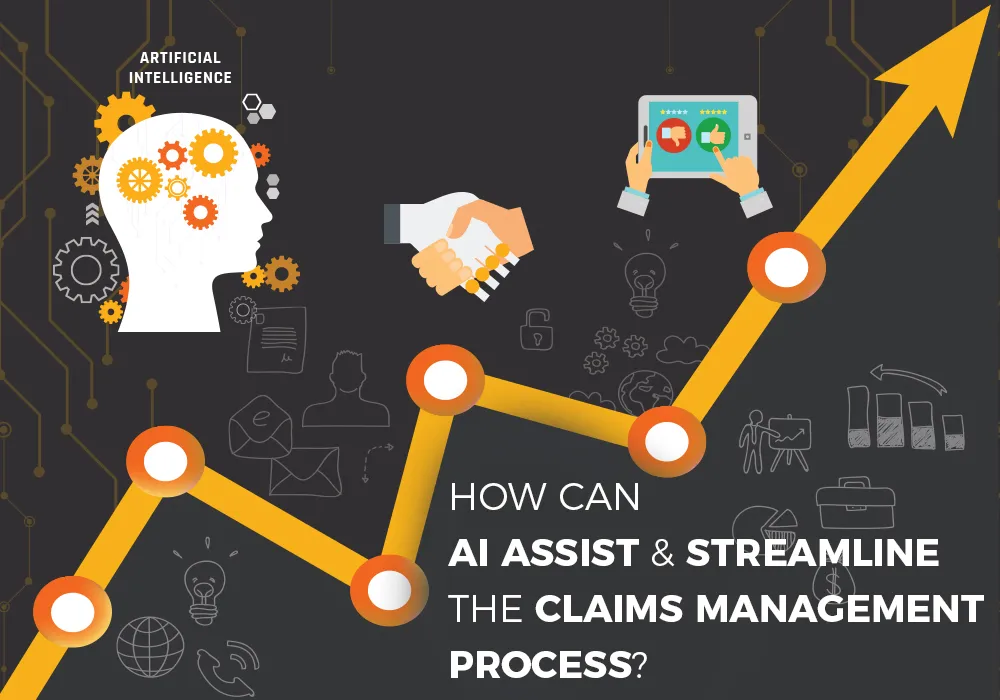
The detailed highlights on the benefits of AI leveraged claims handling both for the insurers and policyholders enlisted below:
AI-driven customized claims handling offers several benefits for insurers, including:
AI-driven customized claims handling also delivers substantial benefits for policyholders, including:

Source:Overcoming Challenges in Insurance Claims Processing (admininsure.com))
When it comes to data privacy and security in the context of AI implementation, organizations face several challenges and considerations:
Ethical considerations play a significant role in AI implementation, and organizations need to address the following challenges:
Implementing AI within an organization comes with its own set of challenges:
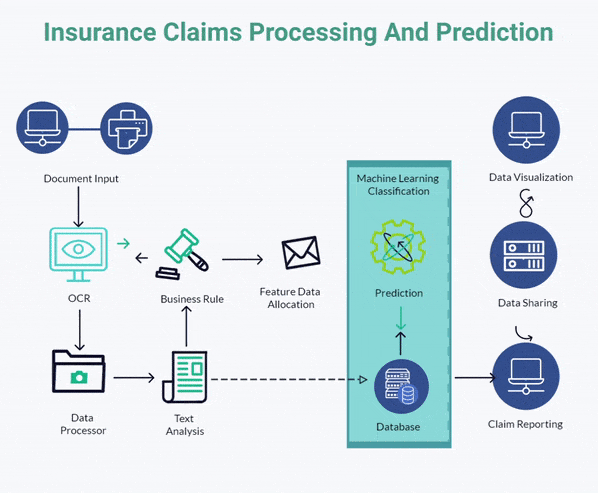
Source: Insurance Claim Automation & Prediction | Rhino Partners (rhino-partners.com)
The next decade is set to see significant advancements in Artificial Intelligence, especially in claims handling. One such technology is blockchain, which is expected to revolutionize claims processing in the insurance sector. Another area of rapid development is AI algorithms, which are anticipated to make significant strides. These advancements will likely result in more sophisticated AI models capable of processing and analyzing complex data with unprecedented accuracy and speed. This progress promises to transform various industries, including insurance, by enabling more precise risk assessment and personalized customer experiences.
AI’s evolution is expected to profoundly impact the insurance industry, with AI-driven solutions becoming increasingly integrated into various facets of insurance operations. From underwriting to customer service and claims handling, AI’s capabilities are set to expand, leading to more efficient and tailored services for policyholders.
Furthermore, the next decade will likely witness remarkable innovations in customized claims handling. With advanced technologies such as AI and machine learning, insurance companies will be better equipped to tailor their claims handling processes to individual policyholders, resulting in faster, more accurate, and personalized claim settlements. This shift towards customized claims handling can potentially enhance customer satisfaction and loyalty in the insurance sector.